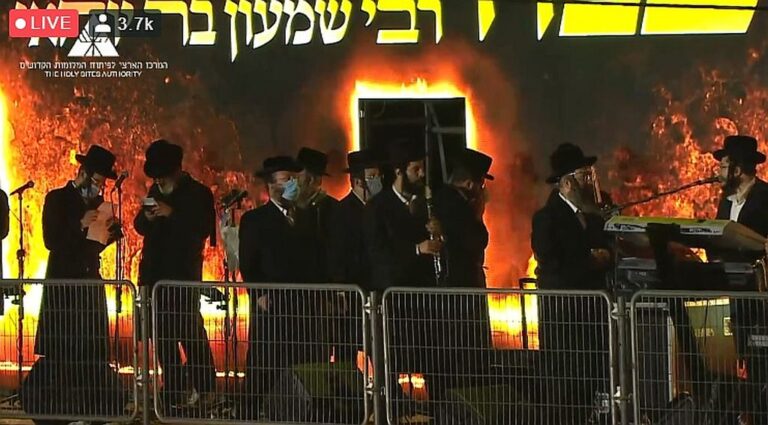Photo Credit: screen grab / Mizmor HD Productions / Vimeo


Lag baOmer marks two closely related and yet completely unrelated events. It is the last day on which the students of R. Akiva died in a devastating plague, and it is also the day that his most famous disciple, R. Shimon bar Yochai, died, many years later and in much different circumstances. The former is the main reason we allow haircuts that day (or the day after); the latter is the reason for the celebrations.
The relationship is actually much more profound than just being events that happened separately to a great teacher and his foremost disciple. As without the first event and the death of R. Akivaâs 24,000 students, it is highly unlikely that R. Shimon would have ever been his student at all. And had that not happened, it is even more unlikely that R. Shimon would have accomplished anything near what he did. In short, there would not have been a Rabbi Shimon bar Yochai.
A close reading of Yevamot 62b makes the above quite clear:
Akiva said: If a man⦠had disciples in his youth, he should also have disciples in his old age. For it is said, âIn the morning sow thy seed, etc.â It was said that R. Akiba had twelve thousand pairs of disciples⦠and all of them died at the same time because they did not treat each other with respect. The world remained desolate until R. Akiba came to our Masters in the South and taught them Torah. These were R. Meir, R. Judah, R. Jose, R. Simeon and R. Eleazar b. Shammua; and it was they who revived the Torah.
So long as R. Akiva had his thousands of students, why would he have gone south and hunted for fresh recruits? This may easily have been the largest yeshiva in history â it seems clear that anyone with true talent would come to study there. Of course, when dealing with large numbers, we cannot state an absolute rule. Meaning that the five rabbis in the South must have had some sort of extenuating circumstances that prevented them from joining R. Akivaâs highly popular center of learning. Alternatively, perhaps they were just too modest. Whatever the reason, they did not learn with R. Akiva until he came to them, something that, without the death of his students, was as likely as the Rosh Yeshiva of Mir, Ponevitch or Merkaz HaRav going to Dimona to become a high school principal!
Hence the immense tragedy of the 24,000 students was seemingly the only way for R. Akiva to meet and subsequently teach his five true disciples. If the decree had been less harsh and some of the 24,000 had been allowed to repent and survive, R. Akiva would have almost certainly stayed with them.
There is a two-part insight here that is as harsh as it is uplifting, one which R. Akiva himself speaks about elsewhere in the Gemara. The first part is that whatever God does is for the good; the second is that it is often very hard to understand the connection between great tragedies and their role in bringing about the good. It appears, however, that R. Akiva was a man of such great faith and insight that he quickly understood what happened to him â and, by extension, what always happens to the Jewish people.
Not long after Oct. 7, I was asked for my response as a rabbi. I tried to find how the tremendous tragedy could be moving us forward nevertheless. When I wrote that article in November, I caveated my words with the need to readily accept God taking history in a different direction than we anticipate. It is not clear to me that I was wrong about what could come out of the death and savagery of Oct 7, but it is also far from clear that I was right. Short of prophecy, it is very difficult to read Godâs hand while one is still in the middle of the story. That is why historians study history and not current events.
More important was my conclusion: Since historical events like these have the potential to challenge our faith, they create a religious imperative to search for Godâs loving hand even in the face of tragedy and sorrow. That is an important part of R. Akivaâs legacy as well as that of R. Shimonâs.
We see from the Gemara about R. Akiva and his students that we will eventually see exactly why God allowed this yearâs very difficult events to occur. In the meantime, we are well advised to try, as best we can, to emulate R. Akivaâs faith-based wisdom; and to celebrate Lag baOmer in that spirit.

